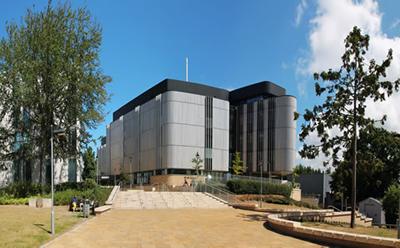Successful IfLS Commercial Literacy course goes national

An Institute for Life Sciences training course, enhancing Southampton academics’ ability to engage with industry, has been so successful that the University’s Royal Society Entrepreneurs in Residence are developing it into a nationally-available commercial project.
The Institute for Life Sciences (IfLS) and two of the University’s Royal Society Entrepreneurs in Residence (RS EiRs) - James Otter and Dr Adam Hill – created the Commercial Literacy programme a couple of years ago to teach IfLS staff and students ‘everything they wanted to know about business but were afraid to ask’.
The programme soon expanded to be open to all University staff and students and, this year, the RS EiRs used it as a foundation to develop a virtual Commercial Literacy programme for their Royal Society Industry Fellow and colleagues across the UK.
IfLS Collaboration Manager Dr Alexandra Mant said: “We originally decided to set up the course as we knew that a lot of our staff and students had fantastic commercial ideas but didn’t always have the confidence or knowledge to put these forward, either to the University or in conversations with businesses. So, we wanted to give them access to the excellent real-world industry experience of our RS EiRs and give them a grounding in how to initially engage with industry.”
James added: “We recognised that it was difficult for people to learn about business, unless they were prepared to commit to doing a Master of Business Administration (MBA) or had the experience of actually working in industry. Our programme offers them the opportunity to gain the confidence to liaise with industry by signing up to bite-size sessions. They can sign up to as many or as little as they like. The sessions are designed to be standalone, but, as you might expect, complement each other and are loosely divided into core and specialist sessions.
“We have also drawn upon the experience of other RS EiRs to build a library of short, practical mini-cases from the real world of business.
“The programme at Southampton was so successful, that earlier this year, we were asked by the Royal Society to adapt Southampton’s course into a virtual format for our Royal Society Fellows. Now, with the full support of the Royal Society, we are working with our colleagues around the UK, and drawing on the experience of the wider Royal Society cohort, to develop this into a commercial product that will be available online.”
Adam added: “The appetite for the content and the positive feedback that we received at Southampton inspired us to make the material available to a wider audience. In the wake of the COVID-19 pandemic, the natural way to scale-up was to make the course virtual and to test the viability of commercialising the course.”
A website hosting the material should be available early in 2021.
The IfLS is currently running its latest version of the programme, which is suitable for people of all levels - from undergraduates to professors - who interact with commercial organisations or have an interest in enterprise. It aims to help them understand more about how business works, to improve their interactions with industry, to improve their understanding of industry for those who leave academia and to help those who are trying to translate and innovate (including starting their own companies).
This year’s course involves all four of the University’s RS EiRs including Virginia Hodge and Dr Duncan Holmes, as well as guest RS EiR Dr Pete Hotten, from Swansea University.
Ric Gillams, a Postdoctoral Fellow in Electronics and Computer Science, at Southampton, felt that he gained a lot by attending one of the previous courses. He said: “Much of the academic research in my current role involves developing new ideas to a proof-of-concept stage. The course covered a wide range of topics including the fundamental aspects of business planning and management, using real world examples.
“I gained an appreciation of the key aspects of starting a business, as well as a basic understanding of business language and the structure of organisations. It was very interesting to learn about the key decision-making processes and how that relates to the structure and management of large organisations.
“Courses like these are important, as the links between research and enterprise in an academic context are becoming more commonplace for a variety of reasons. Commercialisation - or at least an appreciation of the routes to commercialisation - allow researchers to identify routes to deploying novel technologies into more widespread use.”